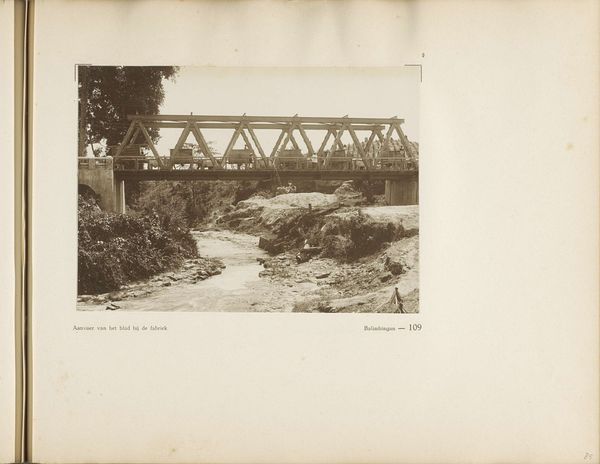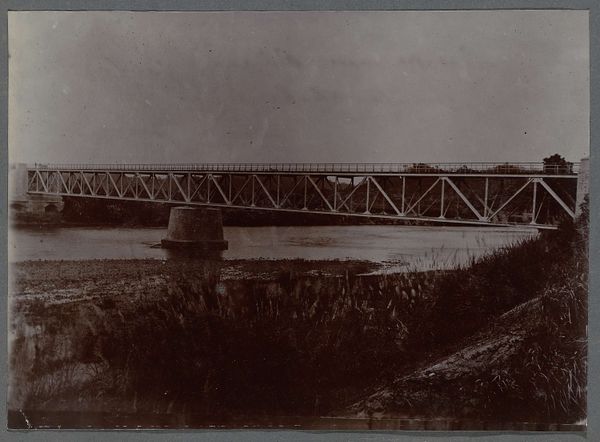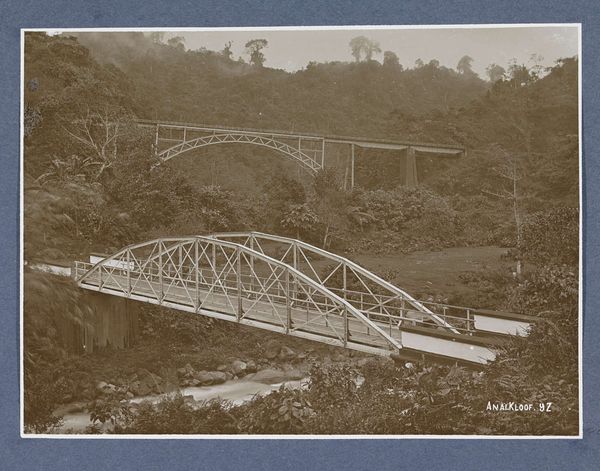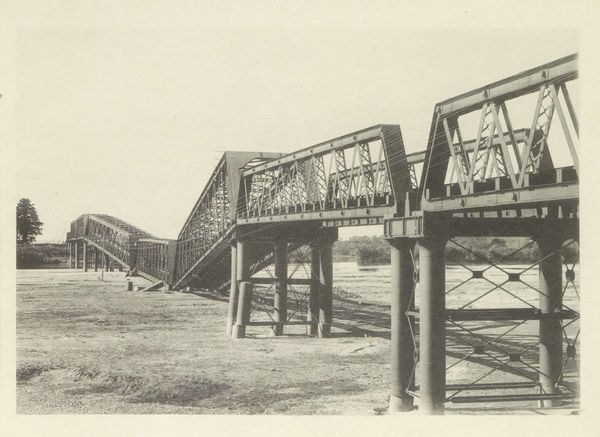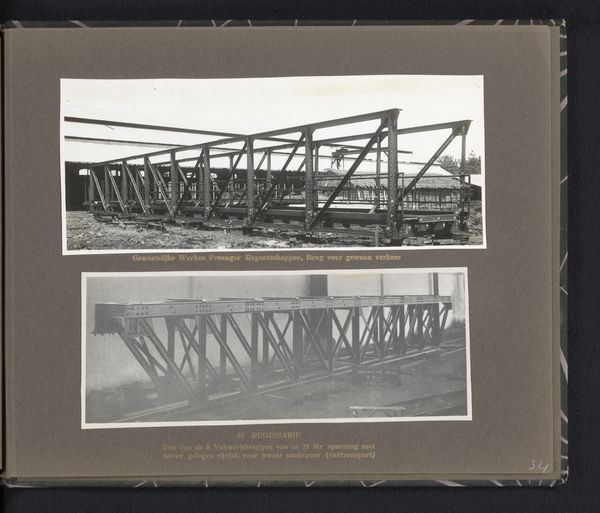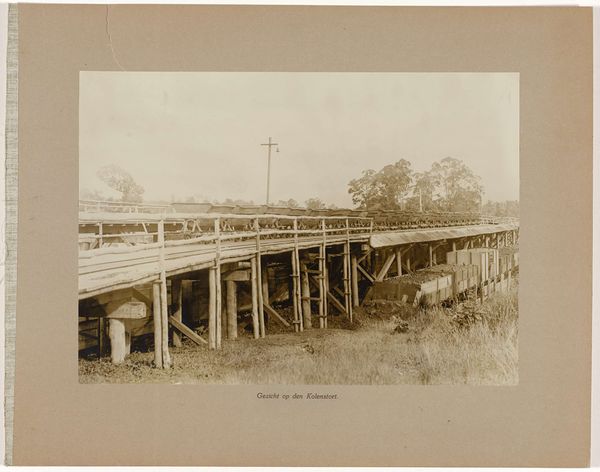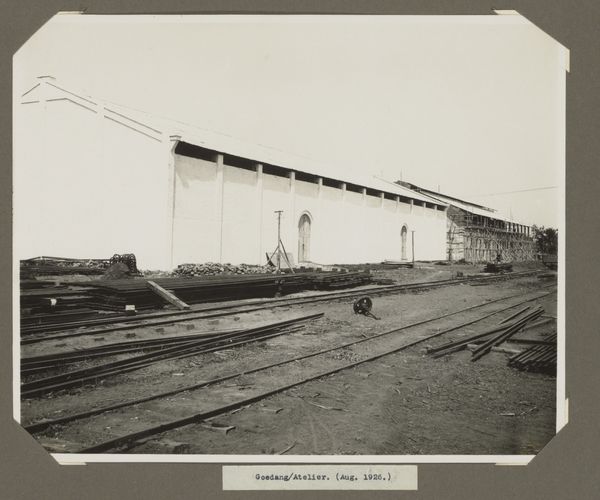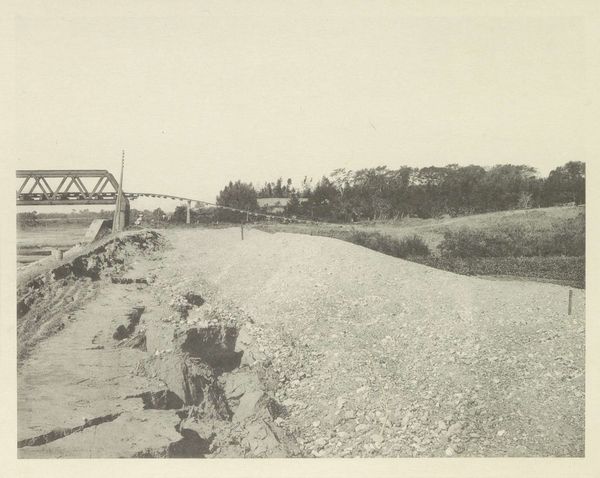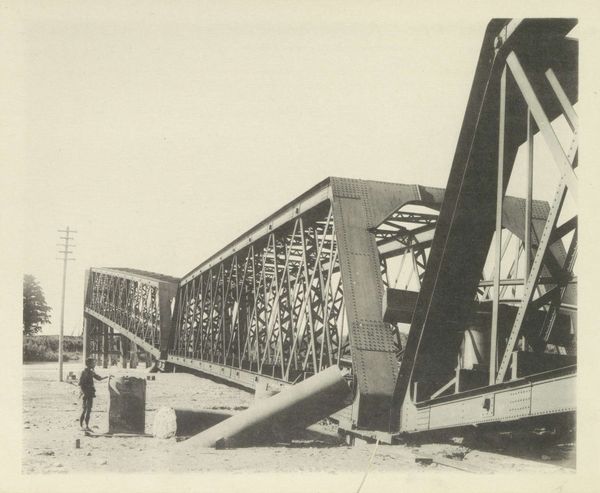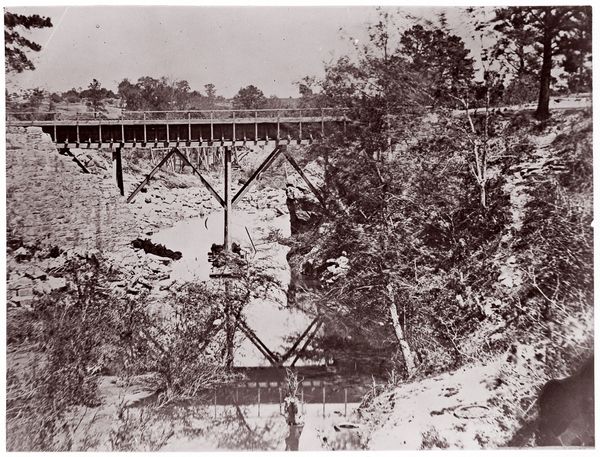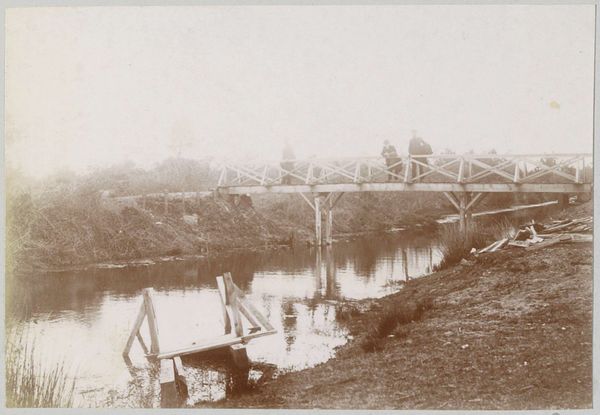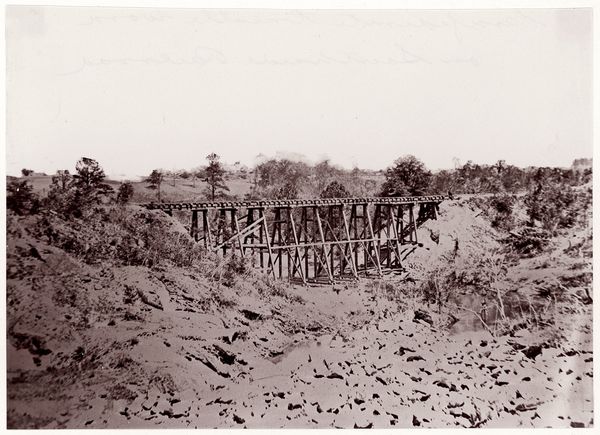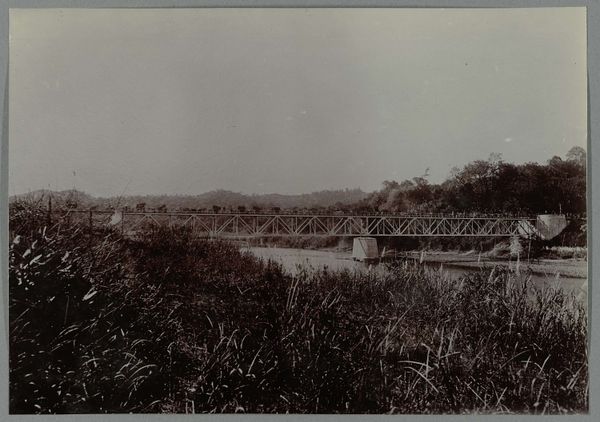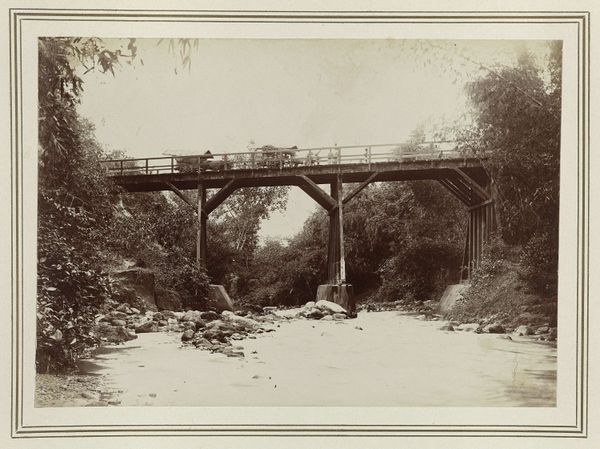
photography
#
landscape
#
photography
#
photojournalism
#
orientalism
Dimensions: height 297 mm, width 450 mm
Copyright: Rijks Museum: Open Domain
Editor: This photograph, entitled "Bridge over the Kali Konto at the Ngandjoek Sugar Factory in Java," dates from around 1925-1930 and is credited to Isken. It depicts a utilitarian bridge set against a backdrop of what appears to be agricultural land. It feels very stark. What historical layers might we unpack in this image? Curator: This photograph, while seemingly a simple landscape, speaks volumes about the colonial project and its impact on Indonesia. The bridge itself, a symbol of connection, is inextricably linked to the sugar factory, which likely represents the exploitation of land and labor under Dutch colonial rule. Can you see how this seemingly neutral scene is actually deeply political? Editor: I see what you mean. The "exotic" landscape aestheticized as "orientalism" contrasts with what the bridge *enables*: the industrialized exploitation of sugar production. The local environment looks almost dominated by the bridge and its implied purpose. Curator: Exactly. And consider who "Isken" was and what role they played. Was this photographer commissioned by the sugar factory, or were they independently documenting the landscape? Understanding their positionality helps us interpret the image more critically. Think about whose voices are silenced in this photograph. Editor: That's a powerful point. We're seeing the landscape through a particular lens, one that might normalize or even celebrate the colonial project. Curator: Precisely. How can we challenge the dominant narratives embedded in images like this, bringing awareness to its implications in our current global landscape? How might we decolonize our gaze? Editor: I suppose it begins with acknowledging the power structures inherent in the image itself and researching the full story. I learned how easily landscape photography can hide a complex network of relationships. Curator: Absolutely. And remembering that even seemingly objective images can perpetuate systems of inequality.
Comments
No comments
Be the first to comment and join the conversation on the ultimate creative platform.
